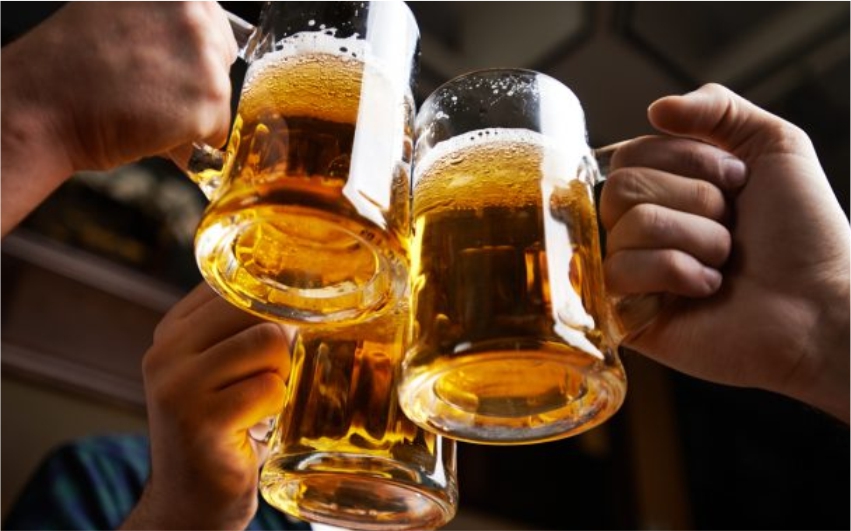From old-school favorites to current fads, some could argue that beer lovers have never celebrated the beverage quite as passionately as they are right now. If you're one of them, researchers have identified a few key benefits that beer may have on your long-term health. Salut!
Before we explore what this study uncovered, it might be prudent to note: We're not promoting heavy drinking or even alcoholic drinking at all. In this meta-analysis, which was recently published in the international, peer-reviewed journal Nutrients, a team of nutrition and food science researchers in Spain examined studies from 2007 to 2020 that had all considered the effects of most alcoholic beverages on health. However, some of the studies they reviewed suggested that naturally occurring nutrients in the beer, and not the alcohol itself, were what delivered some of these health benefits. Since the choice of non-alcoholic beers has never been more abundant, parts of this study also mean good news for beer drinkers who abstain from alcoholic beer.
How to Taste Beer
Also important is that the researchers who conducted this meta-analysis found that very moderate beer consumption was essential to experiencing the health benefits of beer. In fact, they suggest just one drink per day for women and two for men is the maximum. Based on those measures, learn what they found about possible health benefits from beer—also don't miss The 10 Best American Cities for Beer, According to New Data.
1 Moderate beer drinking may protect you against cardiovascular disease.

The researchers state that five of six studies they selected for review identified "a protective effect of moderate alcohol drinking on cardiovascular disease." This was true for individuals who regularly drank up to 13.5 ounces of beer per week when compared to abstainers and occasional drinkers.
2 Beer may help to prevent diabetes in men.

The researchers state: "Men abstainers had a significantly higher risk of developing abnormal glucose regulation … than occasional beer drinkers, suggesting occasional beer consumption may be protective [against diabetes] in men."
3 Beer was associated with healthier bone density.

When looking at bone density and risk of fracture among older individuals, the researchers in the current study state that "very low levels of consumption were associated with a decreased fracture risk." For this variable, they suggest "non-alcoholic components of beer may also be involved," as they get scientific by explaining: "Other compounds present in beer (e.g., phytoestrogens such as 8-prenylnaringenin) act synergically with silicon to stimulate osteoblast cells, improve bone structure, and help remineralize bone and teeth."
All this to say, you might not have guessed that a small amount of beer may actually contribute to your bone health for the long haul.
4 Beer may lower cholesterol.

The researchers highlight several studies which suggested that beer helps promote good cholesterol and regulate the body's processing of bad cholesterol, thanks in large part to the antioxidants in a good brew. It's important to note that this was found when a very small amount of beer was consumed, between half an ounce and an ounce per day.








